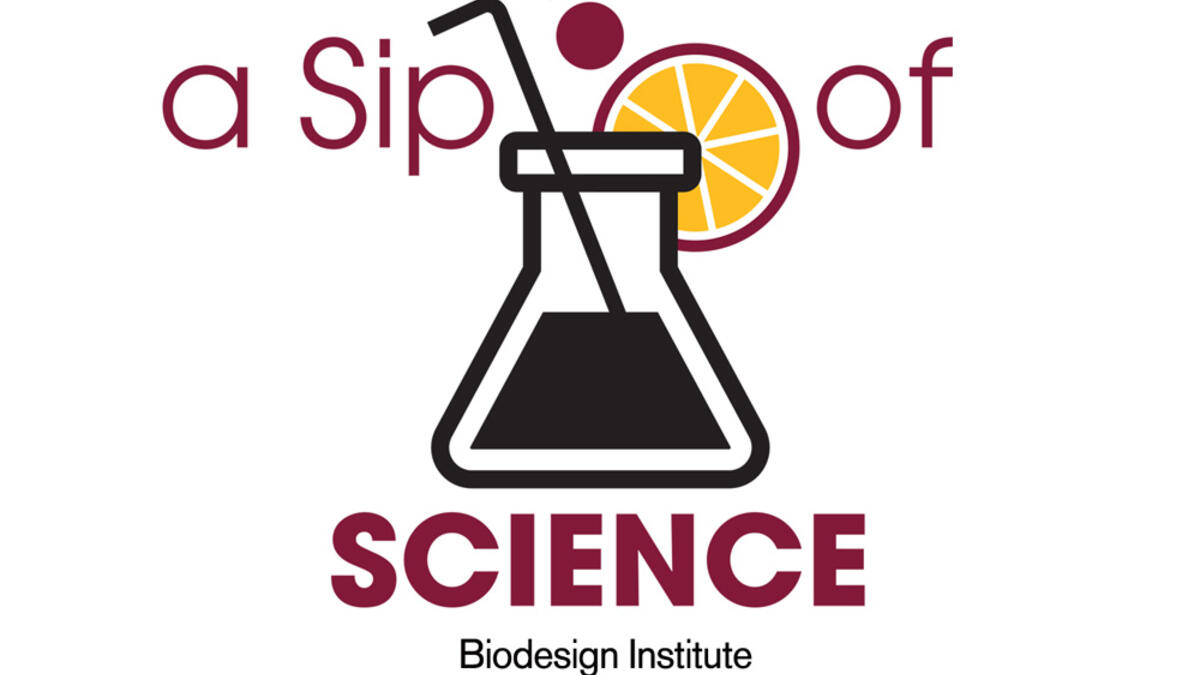'A Sip of Science' connects public to ASU scientists

Mingle with notable scientists and researchers at "A Sip of Science."
On Feb. 8, Arizona State University’s Biodesign Institute launches a new outreach program that invites the general public to mingle with notable scientists and learn about some of the world’s most fascinating and current scientific issues. The “A Sip of Science” talks will take place at six venues Feb. 8 through May 8, where guests will have the opportunity to meet with biologists, neuroscientists, chemists, physicists, engineers and computer scientists at local restaurants.
From why plastics in the ocean could make seafood extinct by 2050 to whether it’s possible to ignite the brain to higher functioning or better memory abilities, ASU’s Biodesign Institute researchers are breaking out of their labs and coming to nearby restaurants to share their expertise on a number of hot-button topics, including their challenges, new discoveries and aspirations to make the world a better place. In this casual setting, attendees will be able to share their ideas and ask questions.
“Keeping up with the world’s information explosion is like trying to drink from a fire hose,” said Biodesign Executive Director Joshua LaBaer. “As a public university, we relish the opportunity to learn from our fellow Arizonans about their interests and ideas, and to share what we know about all the knowledge produced by today’s research. We want to engage in a discussion with the people of Arizona about advances in the world. ”
Each event in the series will feature accessible, lively and wide-ranging conversations. Cost is $15 per event, and includes light appetizers. Happy Hour pricing on beer and wine will be offered at each venue during the event. Proceeds will be used to fund community science events.
For registration and more information, visit the Biodesign Institute website.
The event schedule includes:
Breaking the Ice: Exploring the Frozen Continent with the Penguin Whisperer
Thursday, Feb. 8, 5:30–7 p.m.
George and Dragon English Pub
4240 N. Central Ave., Phoenix
Led by molecular virologist Arvind Varsani, aka “The Penguin Whisperer,” who works across ecosystems from the tropics to the Antarctic, this lecture covers the role viruses play in ecosystems and how they affect the world’s population.
Mo’ Plastics, Mo’ Problems: The Life of a Microplastic and Your Seafood
Sunday, Feb. 11, 2-3:30 p.m.
Tavern Americana
20469 N. Hayden Road, Scottsdale
Biologist Charlie Rolsky shares his passion for keeping the world’s oceans clean and seafood edible and helps guests understand the real threat of seafood becoming extinct in years to come.
The Brain Explained: Can I Change My Brain?
Sunday, March 4, 4–5:30 p.m.
Tomaso’s Italian Restaurant
3225 E. Camelback Road, Phoenix
Neuroscientists Paul Coleman and Diego Mastroeni have handled thousands of human brains in their quest to alleviate suffering caused by Alzheimer’s, dementia and other brain-related illnesses as well as unlock other mysteries of the brain such as nature versus nurture, how to help children develop their brainpower and more.
Why is Cybersecurity So Hard and What Can We Do About It?
Tuesday, March 6, 5:30-7 p.m.
The Market by Jennifer’s
3606 E. Indian School Road, Phoenix
Stephanie Forrest is a computer scientist who looks at cybersecurity from a different angle. How can the principles of biology help us attack viruses and build immunity into our systems? Today, we see many cybersecurity problems online, ranging from data breaches to hacked email accounts to cyberespionage. But, we also see viruses, parasites, and bacteria in biology; bullies in social groups; and rogue nations in the international community. Stephanie’s talk will discuss current cybersecurity challenges, show why some common security advice is irrational, and describe how ideas from biology can provide help us design stronger cyber defenses.
Called the ‘Emperor of all Maladies’: Why are We Optimistic About Cancer?
Sunday, May 6, 3–4:30 p.m.
The Brickyard
85 W. Boston St., Chandler
Researcher and cancer physician Joshua LaBaer has invented a blood test for detecting cancer that is available in the U.S. He continues his quest to develop new, earlier and more precise detection of this challenging disease. His talk will cover what cancer is and why it is unique among all human diseases, the amazing advances made over the last decade — and what’s on the horizon.
Zombies are Real: Are Microbes Controlling My Mind?
Tuesday, May 8, 5:30–7 p.m.
MATCH Restaurant & Cocktails
1100 N. Central Ave., Phoenix
Psychologist, biologist and author Athena Aktipis delves into the mysterious topic of microbes and the possibility that microbial manipulation can affect humankind — from determining the foods we eat and crave to ways they could drive behavior.
More Science and technology

Breakthrough copper alloy achieves unprecedented high-temperature performance
A team of researchers from Arizona State University, the U.S. Army Research Laboratory, Lehigh University and Louisiana State…

4 ASU researchers named senior members of the National Academy of Inventors
The National Academy of Inventors recently named four Arizona State University researchers as senior members to the prestigious…

Transforming Arizona’s highways for a smoother drive
Imagine you’re driving down a smooth stretch of road. Your tires have firm traction. There are no potholes you need to swerve to…

